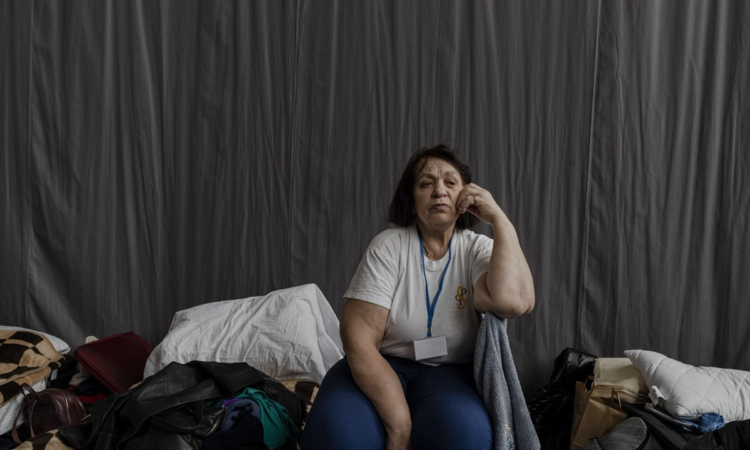Five key themes for improved mental health care for refugees and migrants – World Health Organization (WHO)

On World Mental Health Day, the World Health Organization (WHO) is releasing a new report entitled Mental health of refugees and migrants: risk and protective factors and access to care, outlining the latest global evidence on main factors influencing the mental health of refugees and migrants and their access to care. This is fifth report of the Global evidence review on health and migration (GEHM).
Around 1 in 8 people globally live with a mental health condition. Refugees and migrants are particularly vulnerable, as they can be exposed to various stress factors and challenges, which affect their mental health and well-being both during their journeys and on arrival. The prevalence of common mental disorders such as depression, anxiety and post-traumatic stress disorder (PTSD) tends to be higher among migrants and refugees than among host populations. Girls and women on the move have a higher risk of depression and anxiety.
“Good mental health and well-being is a right for all, including for refugees and migrants,” said Dr Santino Severoni, Director of the WHO’s Department of Health and Migration. “This report will support and strengthen health systems’ responses to the mental health needs of refugees and migrants so that they can receive quality mental health care and support in ways they find accessible, acceptable, and affordable.”
The report summarizes different risk factors and barriers refugee and migrant groups experience and outlines five key themes to be addressed in order to improve their access to mental health care:
“Refugees and migrants face many unique stressors and challenges. This report sets out the urgent need for robust policies and legislation, rooted within stronger health systems, to meet the mental health care needs of refugees and migrants,” said Dévora Kestel, WHO Director for Mental Health and Substance Use.
Based on the findings of the review, this GEHM puts forward a series of actions for consideration by Governments, policymakers, and programme managers in Ministries of Health and other ministries, cutting across all the five thematic areas outlined:
Developed by the WHO’s Department of Health and Migration in collaboration with the Department of Mental Health and Substance Use, this GEHM also identifies critical gaps to be addressed in future research.
The report is the fifth of the Global Evidence Review on Health and Migration (GEHM) series launched by the WHO’s Department of Health and Migration in June 2021. The GEHM series is a collection of global and national synthesis reviews answering the policy questions identified as priorities by summarizing the best available evidence worldwide. The series’ reports provide policy-makers with evidence-based policy considerations to help them address the health aspects of global migration.
Media Contacts
WHO Media Team
World Health Organization
Related
Mental health of refugees and migrants: risk and protective factors and access to care
Capturing the evidence on access to essential antibiotics in refugee and migrant populations
Ensuring the integration of refugees and migrants into immunization policies, planning and service delivery globally
Continuum of care for noncommunicable disease management during the migration cycle
Fact sheets
More
WHO’s work on refugee and migrant health
Refugee and migrant health (Questions and answers)
WHO’s work on mental health
World Mental Health Day 2023







